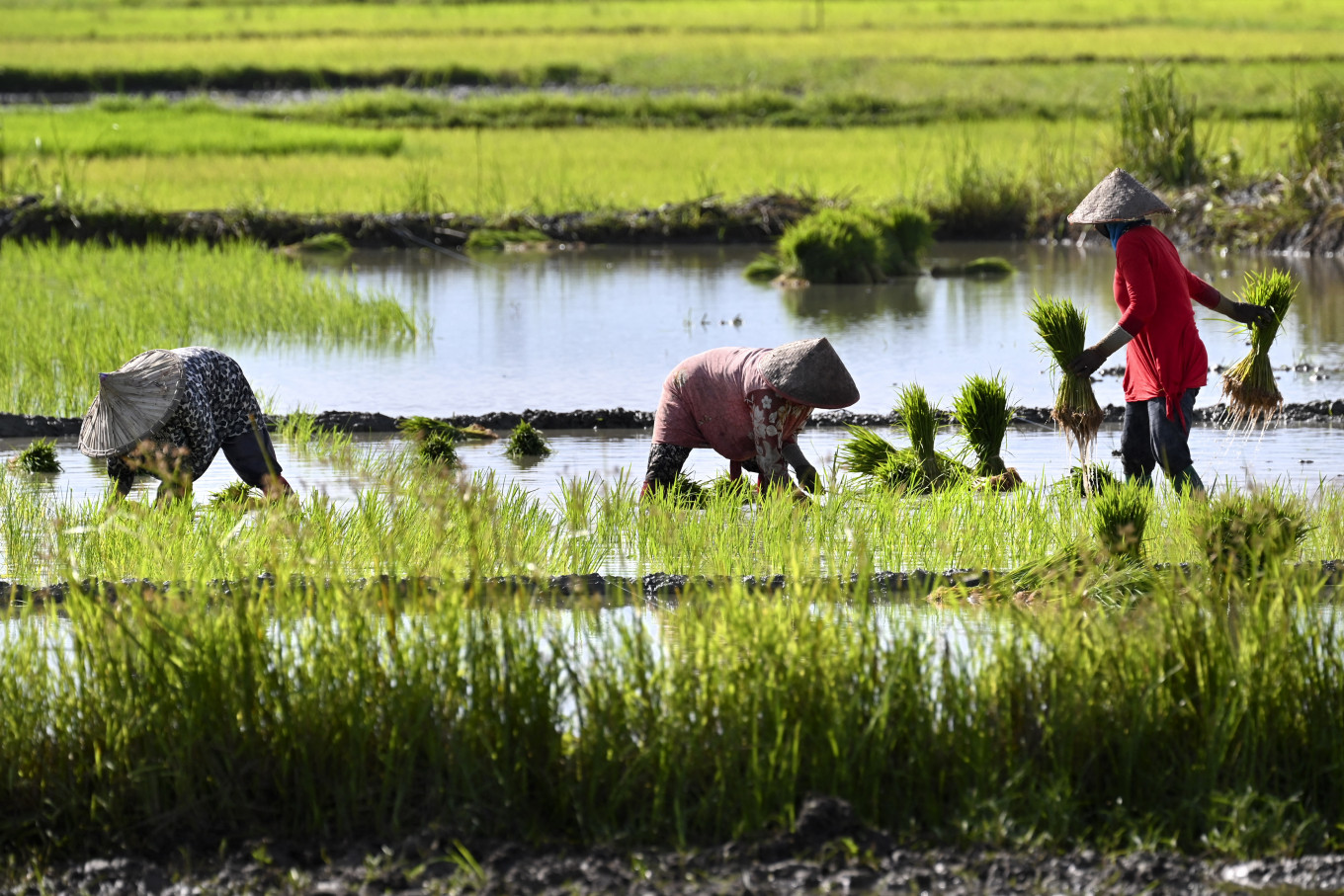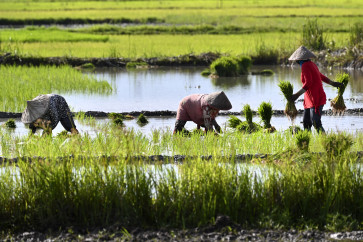Popular Reads
Top Results
Can't find what you're looking for?
View all search resultsPopular Reads
Top Results
Can't find what you're looking for?
View all search resultsBeyond basic needs: How our food security plan can achieve more
Indonesia’s food production is dominated by smallholders who often face food insecurity themselves and are vulnerable to climate impacts.
Change text size
Gift Premium Articles
to Anyone
T
he World Wildlife Fund’s (WWF) “Solving the Great Food Puzzle” report, published in September 2024, suggests potential solutions in addressing food sector contributions to 80 percent of biodiversity loss and approximately one third of greenhouse gas emissions, clustered into six food system types for major food producer countries.
According to the report, Indonesia is uniquely positioned to tackle issues in food-related emissions and land use management. Such opportunity comes from Indonesia’s relatively low food-related emissions, the result of the country’s consumption patterns. Indonesians eat less meat and dairy, both of which are linked to high methane emissions. The country also has lower agricultural practices in high-emission sectors, along with public policies that promote emissions reduction.
Despite this strength, Indonesia, a country renowned for its biodiversity and natural resources, faces a pressing challenge: how to ensure food security for its growing population while mitigating environmental degradation. This, however, can still be addressed by adopting a nature-positive approach to food systems, hence securing Indonesia’s food supply while contributing to climate goals.
The report’s findings also align with the National Medium-Term Development Plan, which aims to strengthen economic resilience for high-quality and equitable growth. This target is reflected by the government’s efforts to create a solid foundation for a more prosperous and equitable future for all, as further emphasized under the strategic objectives of the Food Security Plan 2020–2024. The plan is commendable as it holds the potential to drive sustainable development and ensure that all citizens benefit from enhanced food security and economic stability.
Indonesia’s food systems can be more sustainable. Currently, nearly 80 percent of biodiversity loss and a substantial portion of the country’s carbon emissions stem from agriculture. Despite the growth in food production for the growing population, around 33 percent of Indonesians still face food insecurity. The situation presents a difficult balance — supporting the nation while preserving natural ecosystems, many of which are crucial carbon sinks.
This report underscores the need to rethink food production by integrating sustainability at every stage. The report emphasizes that the key lies in transforming food systems to be part of the climate change solution.
Nature-positive agriculture involves farming practices that maintain ecosystems, conserve biodiversity and absorb large amounts of carbon. With its extensive land and rich biodiversity, Indonesia has great potential to lead this change.



















